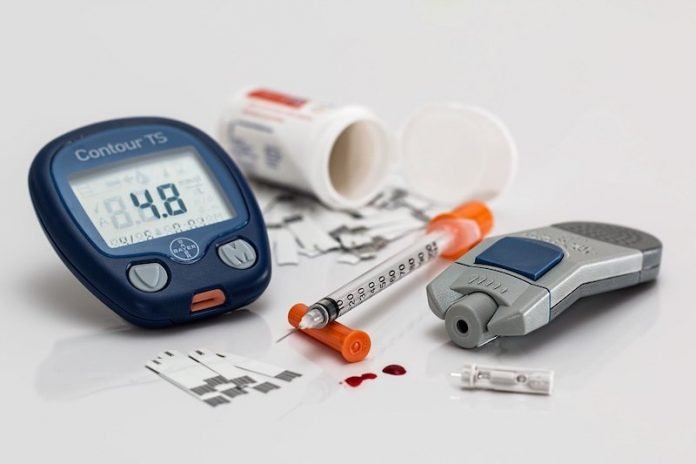
In a new study from Lund University in Sweden, researchers found a protein in the blood that could predict type 2 diabetes up to nineteen years before the onset of the disease.
Type 2 diabetes is a growing global epidemic, with 6% of the world population suffering from the disease.
However, the risk of developing type 2 diabetes can be greatly reduced by weight control, eating well and exercising before the actual manifestation of the disease.
Early detection of type 2 diabetes risk before symptoms could help minimize health complications related to diabetes.
In the study, the team followed 5,318 people over the course of 4 to 19 years in two different locations in Sweden and Finland.
They found that higher levels of the protein follistatin circulating in the blood predict type 2 diabetes up to nineteen years before the onset of the disease, regardless of other known risk factors.
Follistatin is a protein that is mainly secreted from the liver and involved in the regulation of metabolism.
The study examined what happens to the body when follistatin in the blood circulation becomes too high.
The researchers found that follistatin promotes fat breakdown from the adipose tissue, resulting in increased lipid accumulation in the liver. This in turn increases the risk of nonalcoholic fatty liver disease and type 2 diabetes.
The findings suggest that follistatin has the potential to become an important biomarker to predict future type 2 diabetes, and it also brings researchers one step closer to the understanding of the mechanisms behind the disease.
If you care about diabetes, please read studies about this hormone may be a warning light for type 2 diabetes and findings of a more powerful risk factor for diabetes than genetics.
For more information about diabetes and your health, please see recent studies about this mental problem could predict development of type 2 diabetes and results showing that once-a-week insulin shot shows promise in fighting type 2 diabetes.
The study is published in Nature Communications. One author of the study is Dr. Yang De Marinis.
Copyright © 2021 Knowridge Science Report. All rights reserved.



